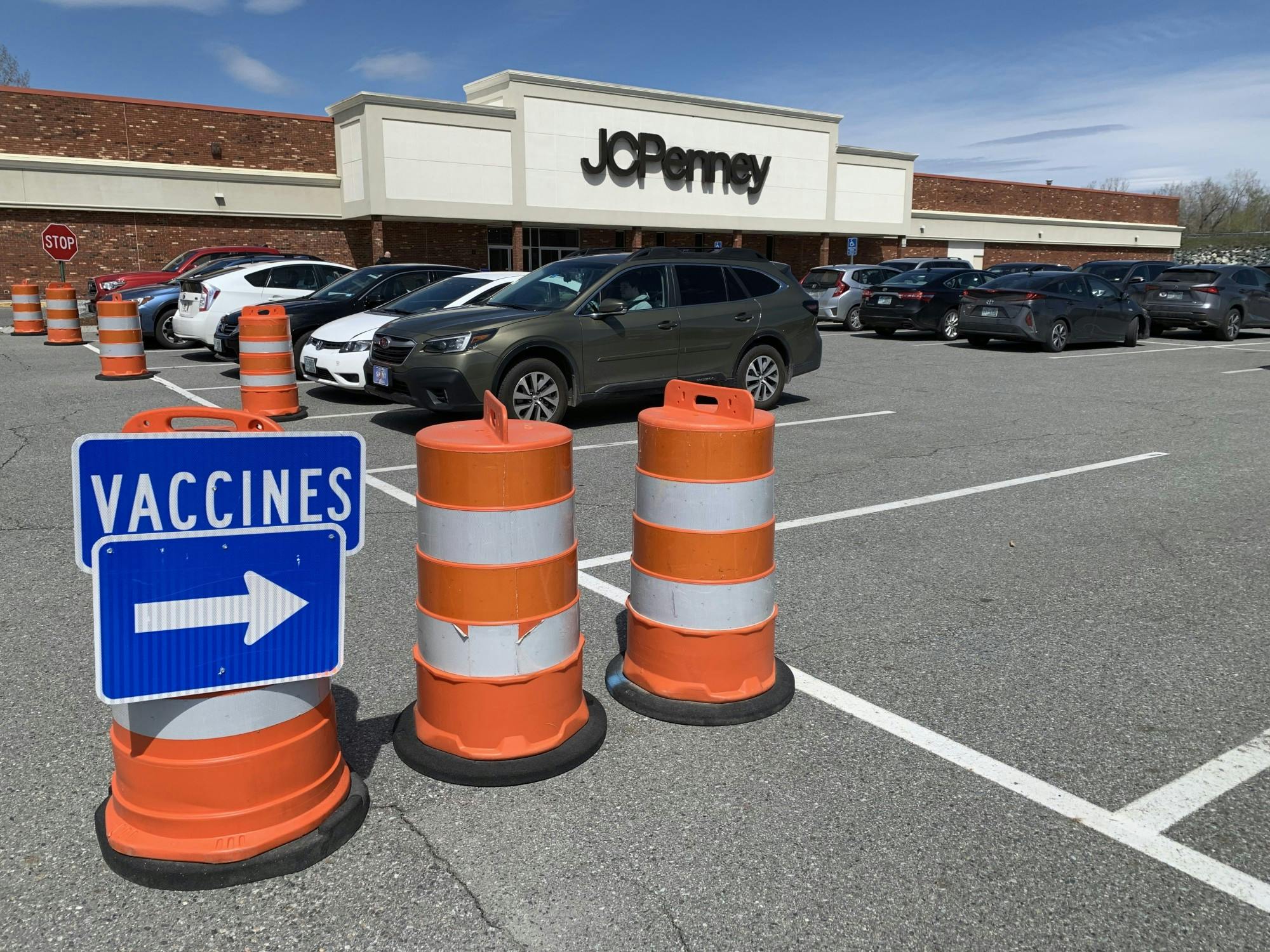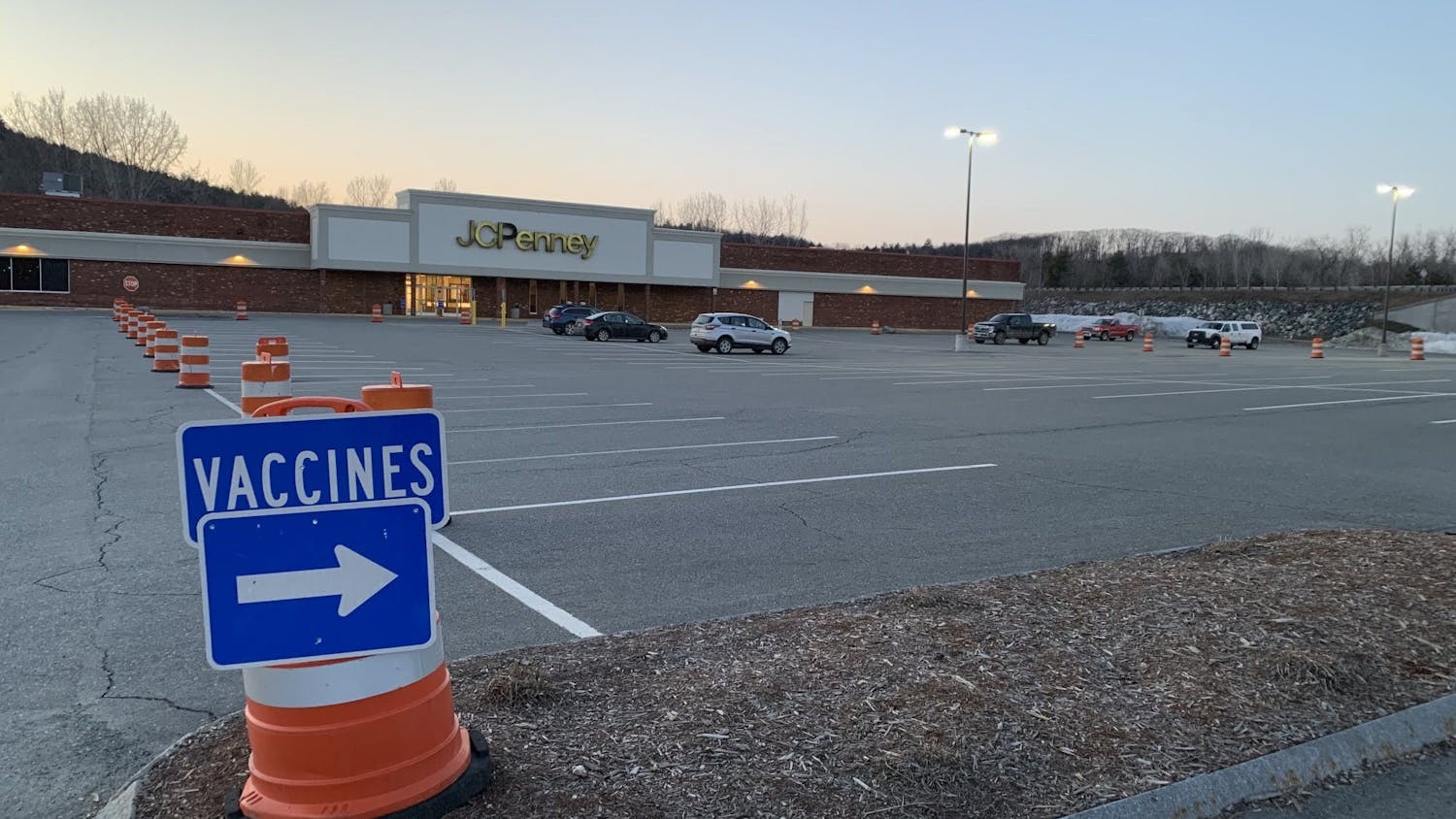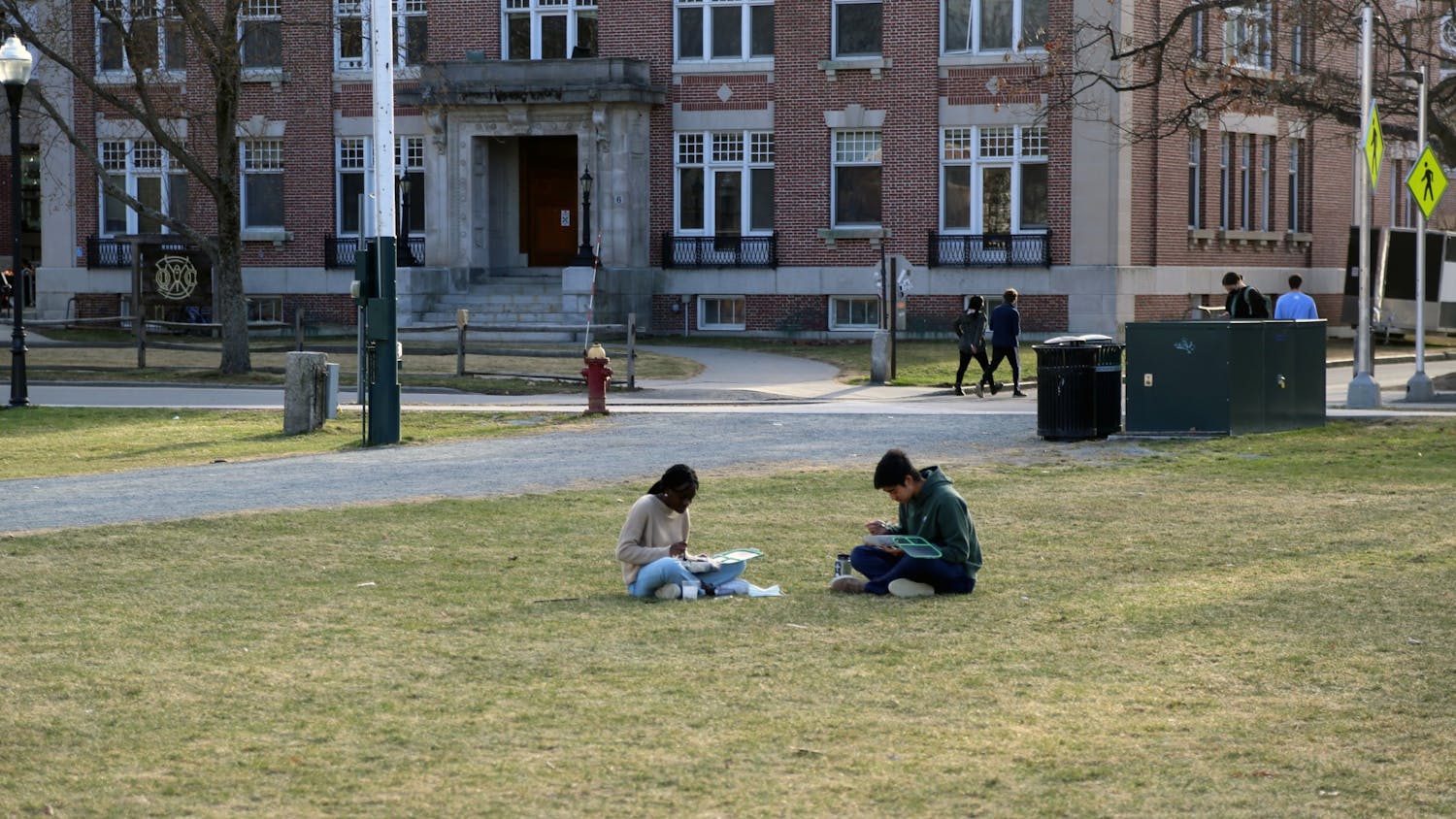As the nationwide vaccine rollout continues, residents of New Hampshire have more than just the hill winds in their veins. According to data from The New York Times, the Granite State leads the U.S. in vaccine distribution both in terms of percentage of allocated vaccines distributed and the percentage of the population with at least one shot.
Over 90% of doses allocated to New Hampshire by the federal government have been administered as of April 28, the highest of any state according to the data set published by the New York Times. Trailing closely behind New Hampshire are North Dakota with 88% of allocated doses administered and Wisconsin and Minnesota with 87% each. Nationwide, 78% of doses allocated have been administered.
New Hampshire also leads in terms of the percentage of population with at least one shot. Roughly 60% of the state’s residents have received at least one dose of the Pfizer, Moderna or Johnson & Johnson vaccines, according to the New York Times data set. The next five states doing best in terms of share of population with at least one shot are the Granite State’s New England neighbors: Massachusetts with 55%, Connecticut, Vermont and Maine with 54% each and Rhode Island with 52%. Nationwide, 43% of the population has received at least one shot.
According to New Hampshire Department of Health and Human Services spokesperson Laura Montenegro, the state’s vaccination effort has been “very carefully planned from the beginning.”
“Initially, distribution was limited to hospitals, the state-run fixed sites and long-term care facilities through the federal pharmacy partnership program, but, as allocation increased, we expanded our distribution to pharmacies and other providers,” Montenegro said.
New Hampshire has taken part in the federal pharmacy partnership program, a collaboration connecting national pharmacy partners and independent pharmacy networks with the federal government and states to increase access to COVID-19 vaccines across the U.S., according to the Centers for Disease Control and Prevention website.
Nashua Division of Public Health and Community Services director Bobbie Bagley cited partnerships with state and local health departments, engagement with residents and statewide efforts to “debunk myths” as major contributions to the efficiency of New Hampshire’s vaccine rollout plan.
The Nashua and Manchester health departments — the two “fully functioning” local health departments in New Hampshire, according to Bagley — have had strong engagement with residents at the local and community level, she said.
“We’ve just put a great deal of effort into making sure that we could… dispel any hesitancy that folks had [about the vaccines],” Bagely said. “…If I believe in the efficacy of the vaccine, the safety of the vaccine, I’m encouraging you to do so, as well, and I think that made a big difference.”
In Nashua, the department also facilitates weekly equity clinics with “400 to 600 folks” attending each clinic, Bagley said.
“10 percent of the vaccines that came into the state were allocated to a population of minorities and individuals who are homeless, had language barriers or they had transportation barriers and were impacted disproportionately by this infection,” Bagley explained. “Our datasets showed us [those groups] were disproportionately impacted by COVID infection, hospitalization and even death… so we wanted to have an equity allocation to address that.”
Montenegro also pointed to New Hampshire’s mass vaccination clinics at the New Hampshire Motor Speedway as major contributors to the state’s high vaccination rate. According to data from the New Hampshire Department of Health and Human Services, over 38,000 vaccine doses were administered at four mass vaccination events, including 22,326 doses of the single-dose Johnson & Johnson vaccine.
Although she said she did not have exact numbers, Hanover town manager Julia Griffin estimated that the percentage of vaccinated Hanover residents is likely even higher than the statewide figure because of Hanover’s large population of healthcare workers and the community’s willingness to get vaccinated.
“This is an area that’s pretty vaccine-supportive, so I think folks in general have been proactive in getting signed up for their vaccines,” Griffin said.
She speculated that New Hampshire might have been more effective at distributing vaccines than other U.S. states due to its small population.
“In many ways, it’s easier to communicate when you have a smaller number of people you have to communicate with,” Griffin said. “Because we’re a small state, just a little over 1.2 million [people], access to information and access to vaccination is pretty convenient.”
College Health Service director Mark Reed said that while he wished vaccine distribution would have been “a more friendly experience” for out-of-state college students residing in New Hampshire, he emphasized that, otherwise, the state did a good job “running their clinics smoothly.”
New Hampshire initially blocked out-of-state college students from vaccinations in the state, but Gov. Chris Sununu, a Republican, lifted the strict residency requirement on April 19 once every state nationwide had opened vaccinations to all residents.
On April 9, Reed sent an email to Dartmouth students asking that they share documentation with the College of being fully vaccinated — 14 days after the second dose of the Pfizer or Moderna vaccines or 14 days after the one-dose Johnson & Johnson vaccine — to increase the speed at which the College opens up, and offer additional freedoms to vaccinated students.
These privileges include once a week COVID-19 screening testing instead of twice a week, domestic travel without quarantine, and off-campus gatherings in small groups with other fully vaccinated people, Reed said in the email.
As of April 23, “over 700 [Dartmouth] students have submitted documentation of being 14 days out from their last vaccine — from their second vaccine if it was Moderna or Pfizer, or their first vaccine if it was Johnson & Johnson,” Reed said in an interview. About 170 students, he added, are also fully vaccinated but are not 14 days out from their second dose.
Reed suggested that there may be more students who have been fully vaccinated but have not yet submitted documentation.
“We’re really encouraging students — if they have received the vaccines — to send us the documentation, as this spring is really a transition as we move towards a more open campus.” Reed said.
Kristin Chapman ’24 is an English major and Spanish minor from Rye, New York. She currently serves as the editor-in-chief and previously wrote and edited for the News section. In her free time, she enjoys reading books, running, hiking and doing yoga.




